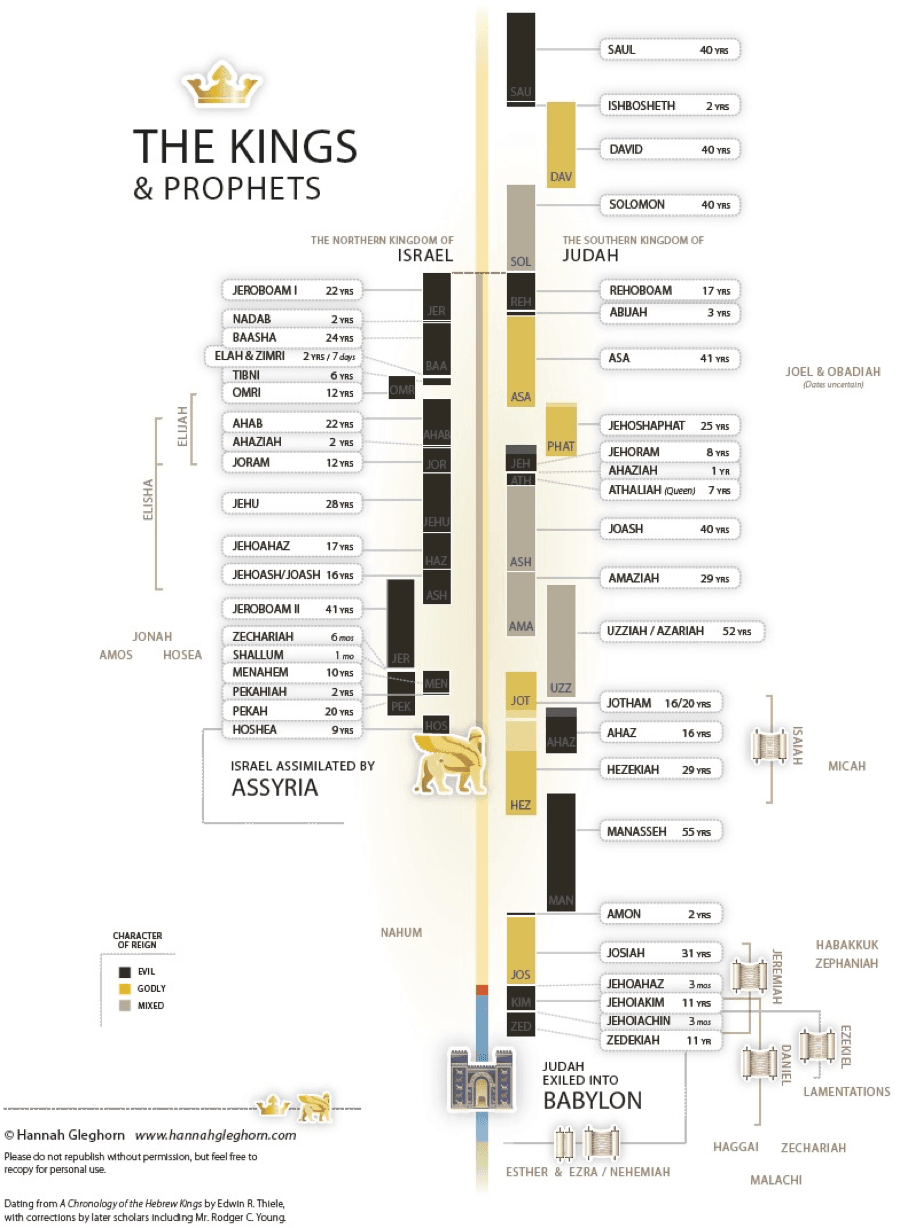Introduction to Samuel
Reading: 1 Samuel Chapter 1
Summary/Context: Most Bible scholars suggest 1 and 2 Samuel were originally one book. The account begins in time of apostasy and lack of godly leadership recorded in the Book of Judges. If a reminder is needed, please recall the author of Judges summed up the condition of God’s people Israel in the final verse with, “In those days there was no king in Israel; everyone did whatever seemed right to him” (Judges 21:25).
In 1 Samuel the Lord providentially intervenes through both humble and great lives to lead His people from the dysfunctional theocracy directed by judges to His planned monarchy. It is in this intercession that we will meet David, the seemingly unworthy shepherd boy who will be transformed by God into Israel’s greatest human monarch. Through David, the Lord established an eternal dynasty leading to his ultimate successor, King Jesus.
In both books of Samuel, it is possible to focus on the people in some of the best known Bible stories. There are heroic accounts of battling a giant, touching accounts of friendship, and courageous accounts of trusting God —but we will see that these stories in the lives of Samuel (chapters 1-7), Saul, (chapters 8-15) and David (chapters 16-31) are gospel stories full of testimonies of hope and salvation. Because God injects Himself into the lives of these people, we will see “God’s providential intervention into lives” as the theme of 1 Samuel. The Lord’s intervention makes Him the book’s main protagonist, seen in that the term the Lord (for Yahweh) is used more than 60 times in the first three chapters.
In Chapter 1, we meet baby Samuel the eventual man of transition from the darkness of the days of the Judges to Israel’s highpoint as a monarchy. Peter called Samuel the final judge, and Paul called him the first prophet (Acts 3:24, 13:20). He would anoint the first two kings of Israel and was one of only eight people recorded to have the Lord call him by name two times (1 Samuel 3:10, 10:1, 16:13).
Many believe that by the opening of 1 Samuel, the Lord’s tabernacle at Shiloh was surrounded by a stone wall. This may explain why, in verse 7, the tabernacle is referred to as the “Lord’s house”, while in verse 9 it is referred to as the Lord’s temple. Depending on your Bible version, you’ll also see Him referred to as the "Lord of armies” or “Lord of Hosts” for the first time.
Subject: Introduction to Samuel
Object: Know God Intervenes in lives, tell others God intervenes in lives.
I. 1 Samuel 1:1-8, The Problem
Note: Elkanah was of the priestly line who annually and faithfully cameto worship and make sacrifice at Shiloh (1 Chronicles 6:33-38), yet his fault of polygamy was not hidden. While the Bible never condones polygamy, the resulting tension helps explain the spiritual dysfunction of Israel in the time of the Judges and their great need to respond to God’s intercession in their lives. While outside of God’s plan for marriage, culturally it would have been acceptable for Elkanah to take Peninnah as a second wife to provide the children he could not have with Hannah. Elkanah providing Hannah with a double portion likely signifies she was not only the first wife, but the more beloved wife. It also likely explains Peninnah’s taunting of Hannah. While Verse 6 says the Lord kept Hannah from conceiving, she clearly experienced the cultural and personal anguish of not having a child.
- Verse 6 could read, “the Lord has closed her womb.” Why is God’s control of giving and taking life important in our modern context?
- How do you reconcile seemingly godly people (in some areas of their lives) living radically outside of His will in other areas of their life?
- Why would Peninnah desire to make Hannah miserable?
II. 1 Samuel 1:9-11, The Response of Hannah
Note: Hannah responded by taking her pain and bitterness to the Lord. Maybe the news of the Lord giving a child to the barren Manoah and his wife had reached her, but like Samson (Judges 13:1-5), in faith she made a further response of dedicating her yet-unborn son to the Lord with the vow of a Nazarite (Numbers 6:1-21).
- Why was it better for Hannah to seek her satisfaction and identity in the Lord rather than her husband?
- What are the pros and cons of making vows before the Lord?
III. 1 Samuel 1:12-18, The Response of Eli
Note: The literal translation of verse 12 could read of Hannah, “While she multiplied her prayer in the Lord’s presence…” If it was not that she was diligently praying to the Lord, Eli’s misunderstanding of Hannah being drunk could seem comedic, instead of indicative of the state of people coming to worship in that day. Even Eli’s sons would later be known for their evil deeds at the tabernacle (1 Samuel 2:12). When Hannah explained her brokenness before the Lord, Eli responded by blessing her.
- Why are the words of Hannah’s heart more important to the Lord than the words of her mouth?
- Why was Hannah able to eat and have joy after praying and being blessed by Eli?
IV. 1 Samuel 1:19-28, The Response of God
Note: Hannah may have initially presumed the promise of a child would be immediate, but verse 20 infers she waited patiently in faith for the birth of Samuel. Though the promise of a son would be fulfilled, “After some time,” Hannah’s faith was clearly displayed as she worshipped the Lord with joy. This is when the Lord intervened in Hannah and Elkanah’s lives to bring Samuel.
- Why is it difficult to wait for the response to God’s promises in our lives?
- What is wise about Elkanah’s response to Hannah’s desire to wait until Samuel was weaned (about 3-years in that culture) before taking him to the tabernacle? (verse 23).
- Why was it so important for Hannah to give a testimony to Eli, and why should we speak of what God has done in our lives?
Deeper questions and resources:
- Using a resource like Hitchcock's Bible Names Dictionary, look up the names of Elkanah, Hannah, Peninnah and Samuel and consider how those names play into the narrative.
- Answers in Genesis has a very good position and explanation on polygamy.
- The Bible Project offers an excellent video overview of 1 Samuel
- Pastor David Guzik’s commentary on 1 Samuel.
- Below is a chart showing the kings and prophets of 1-2 Samuel, 1-2 Kings and 1-2 Chronicles (used with permission from Hannah Gleghorn).



